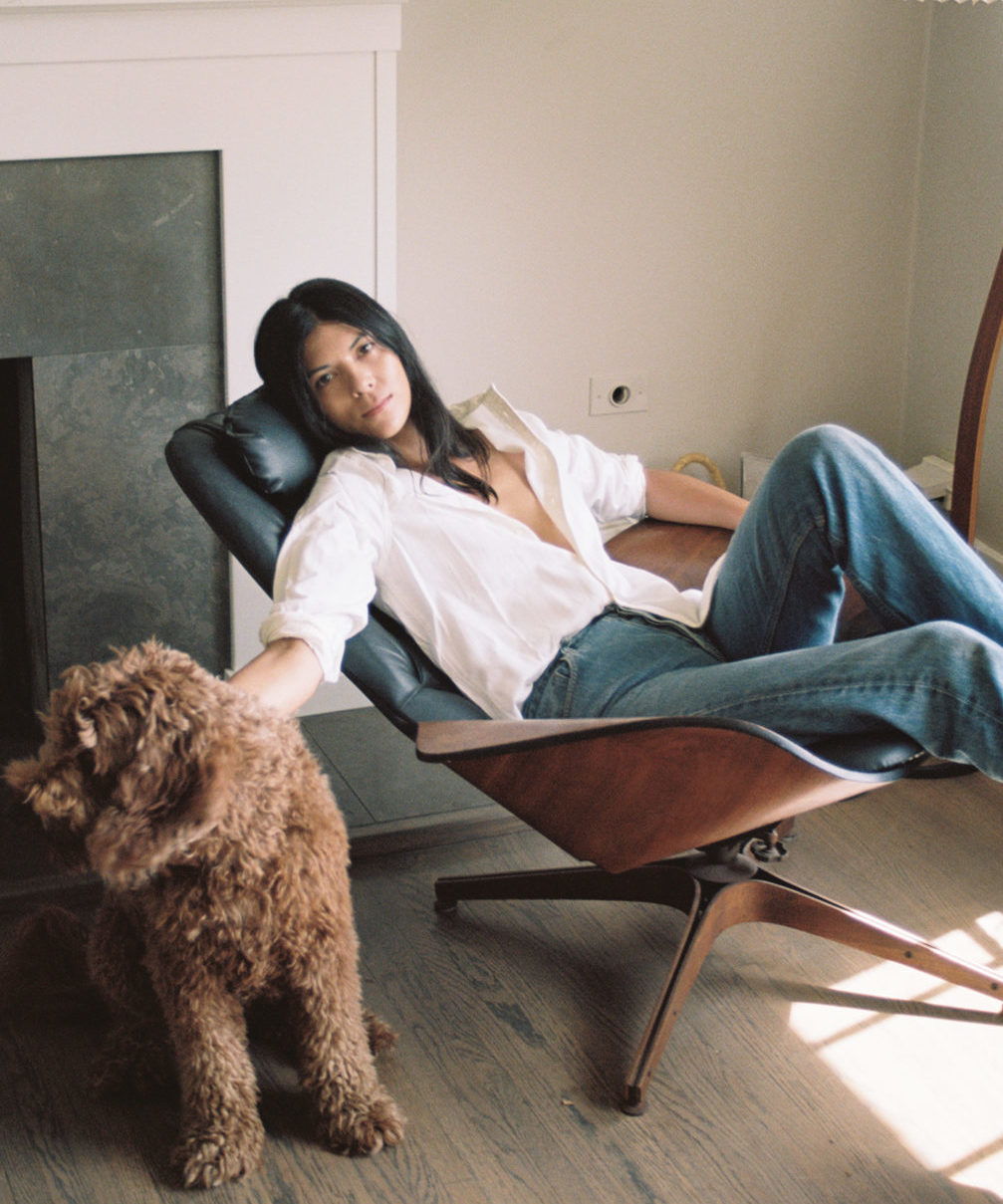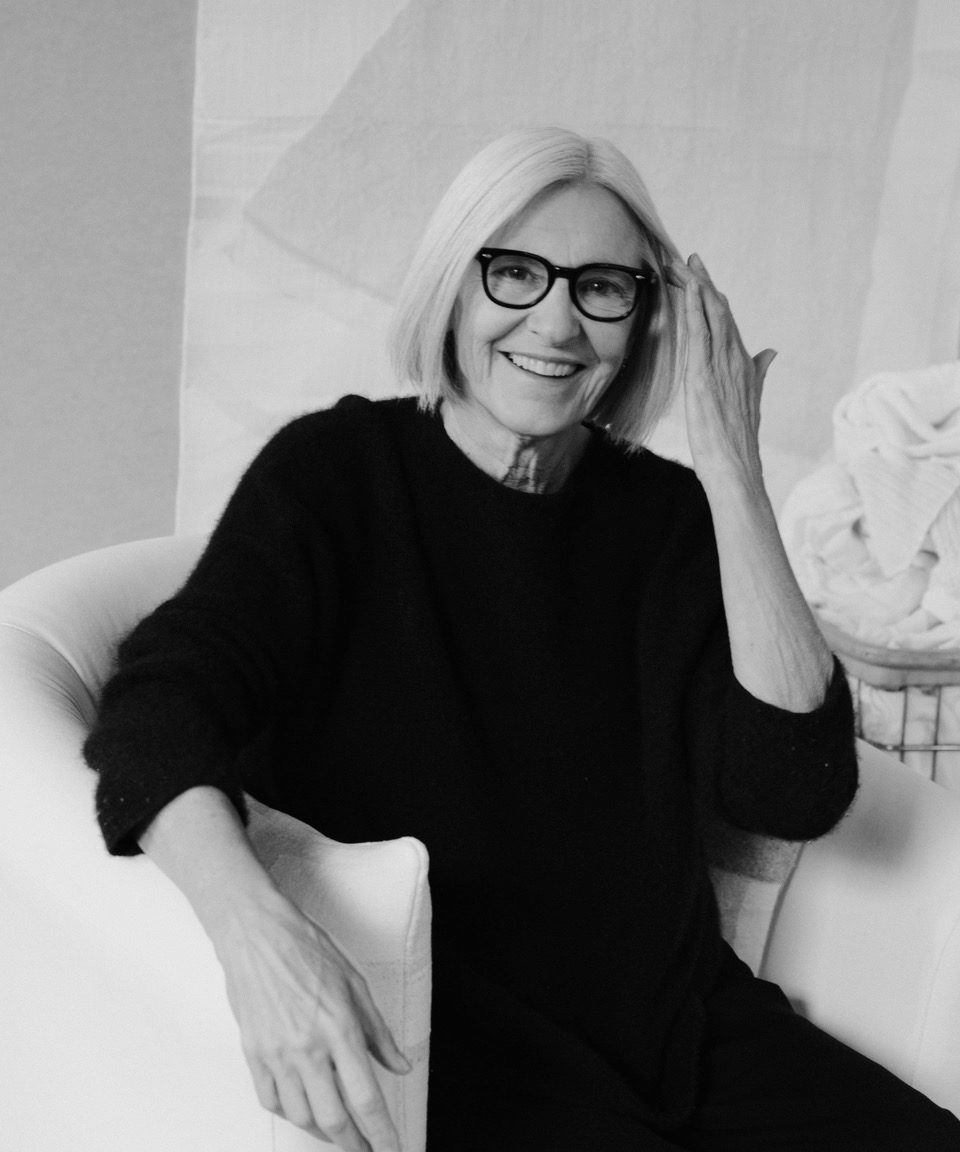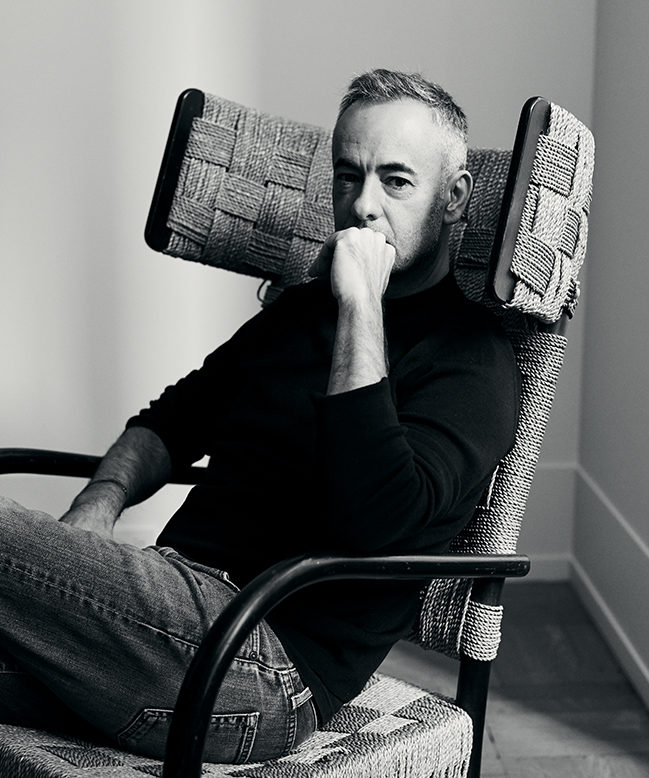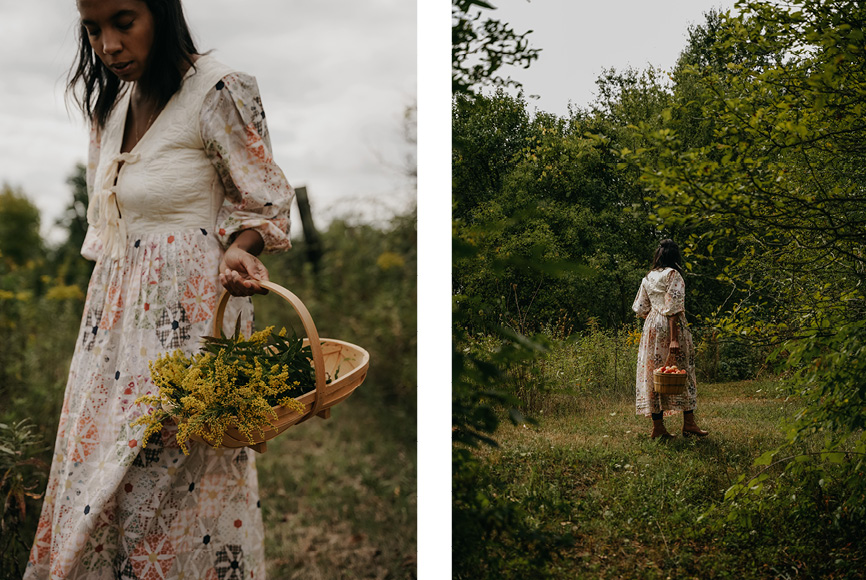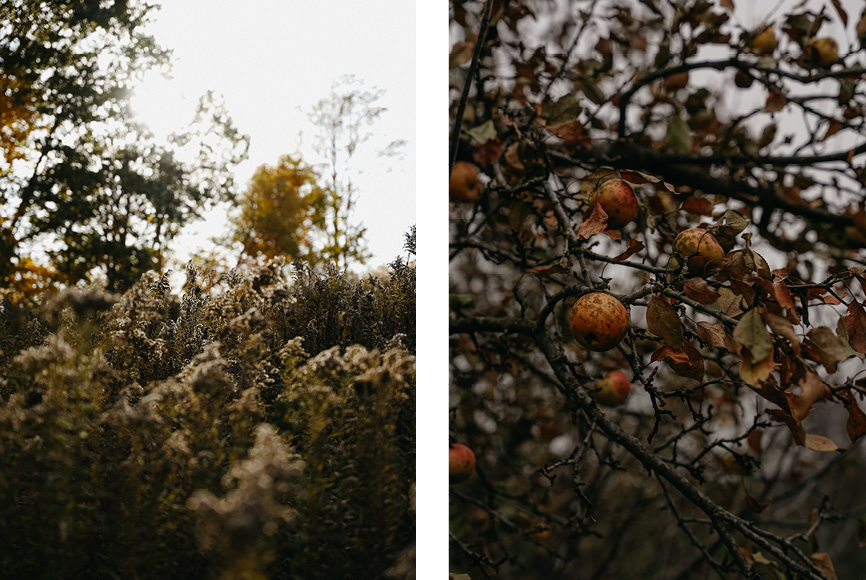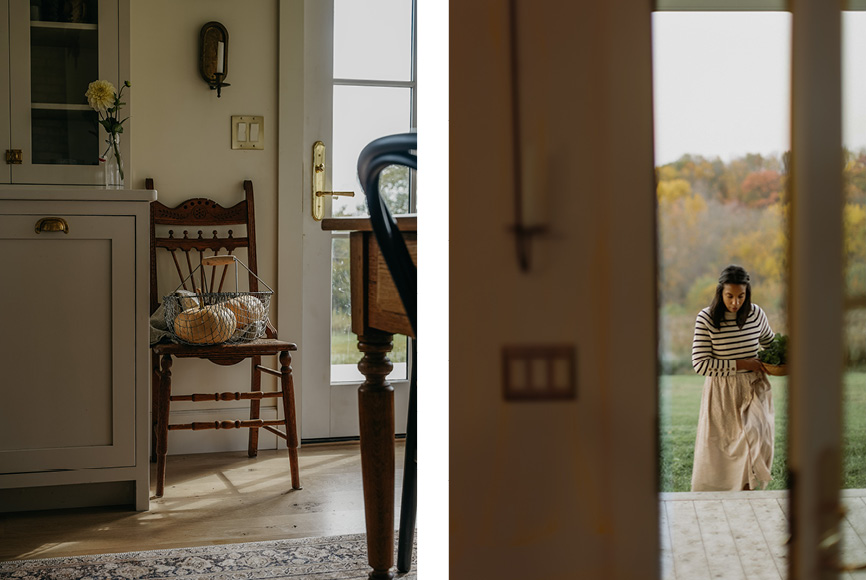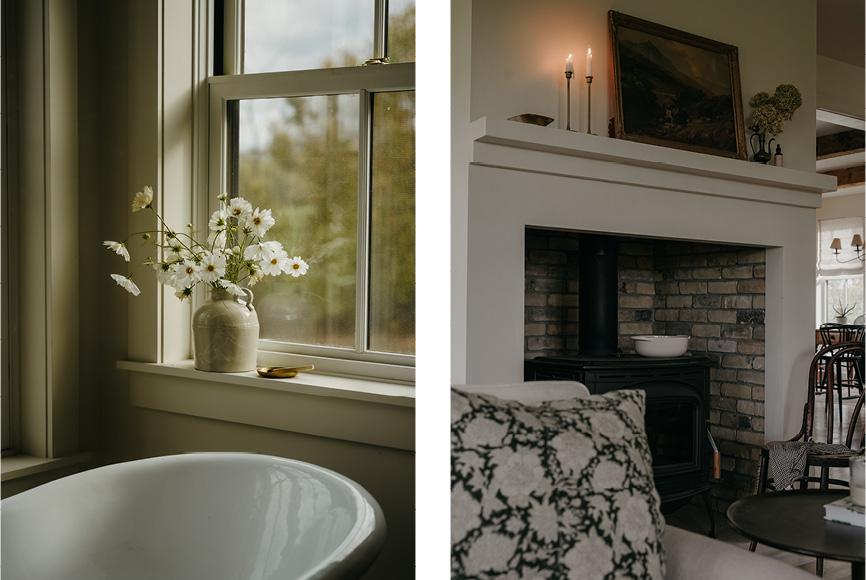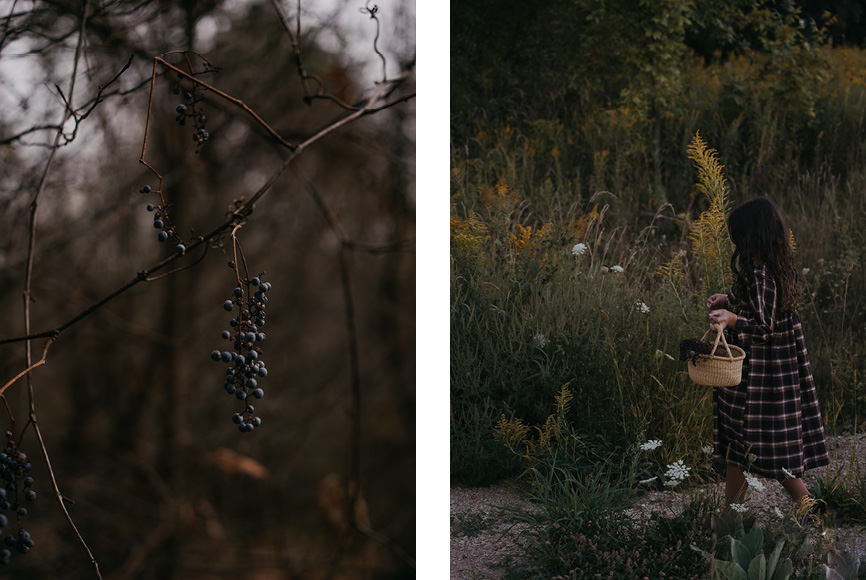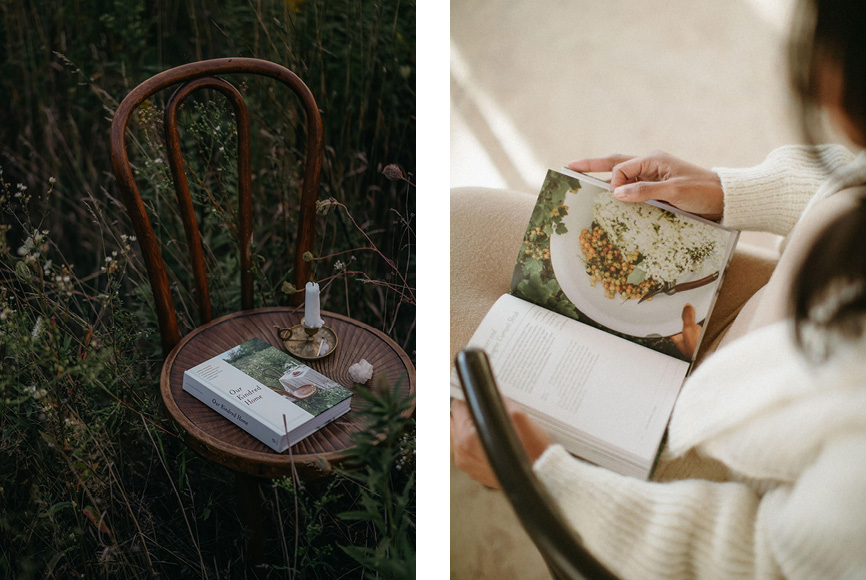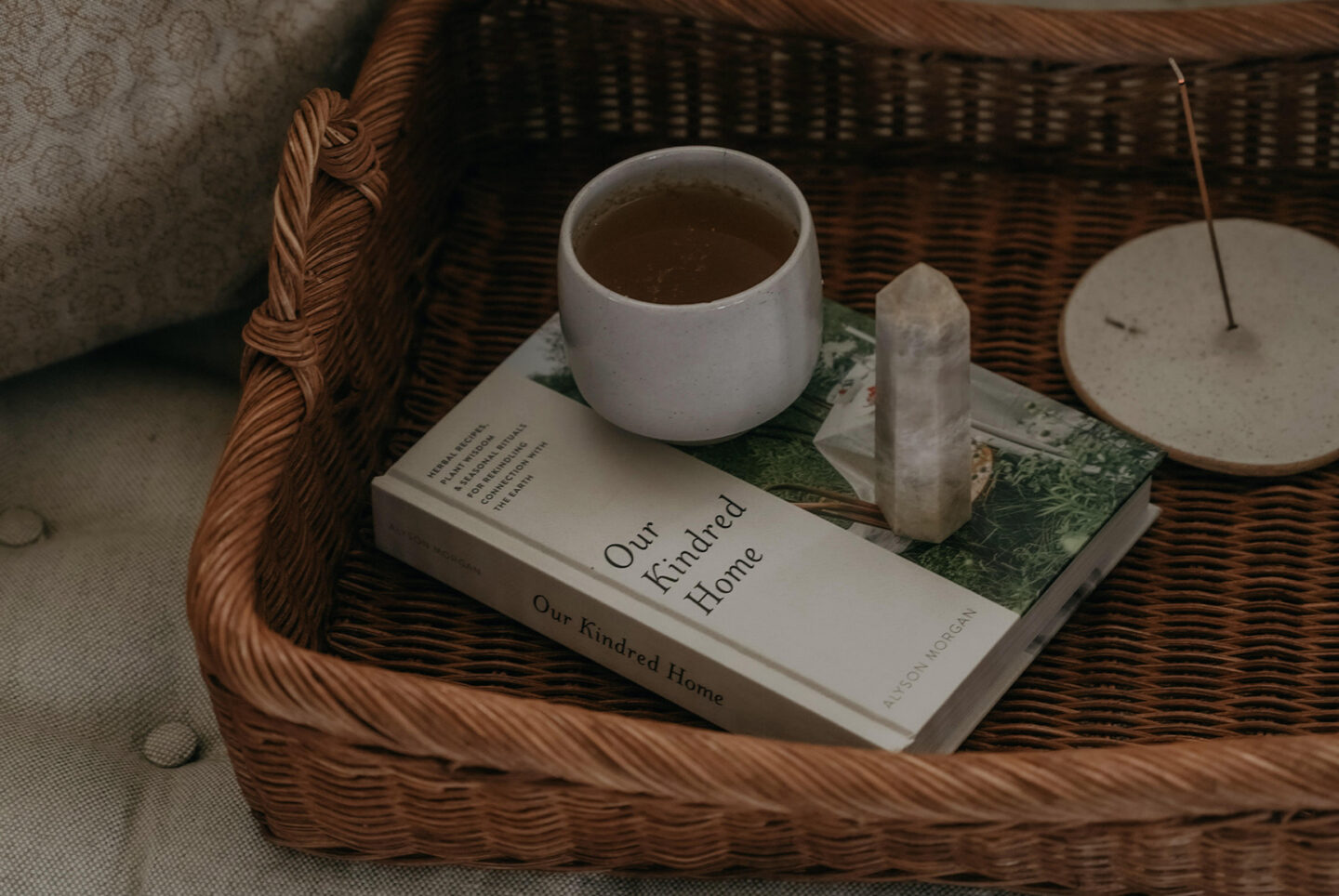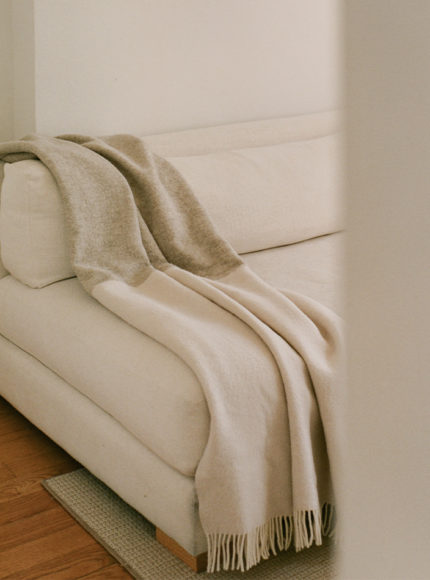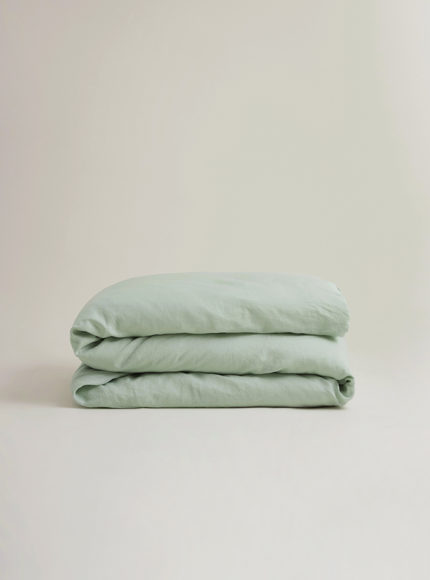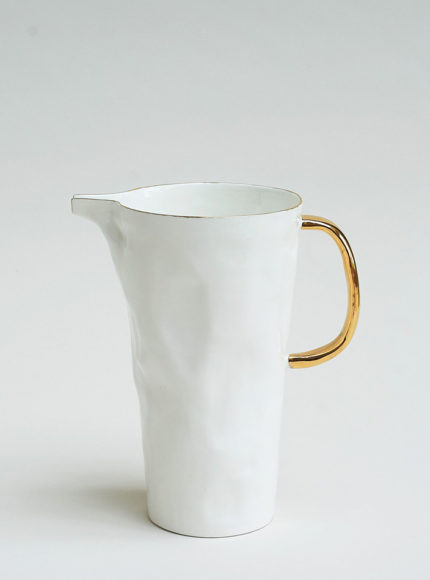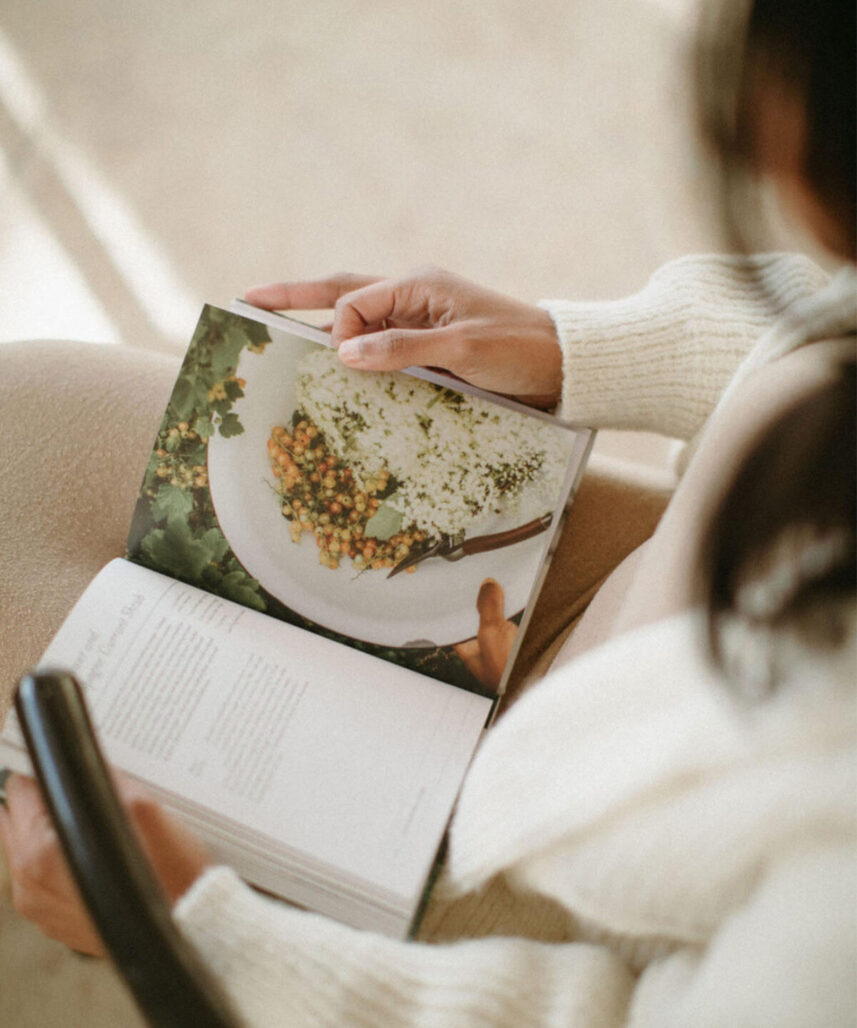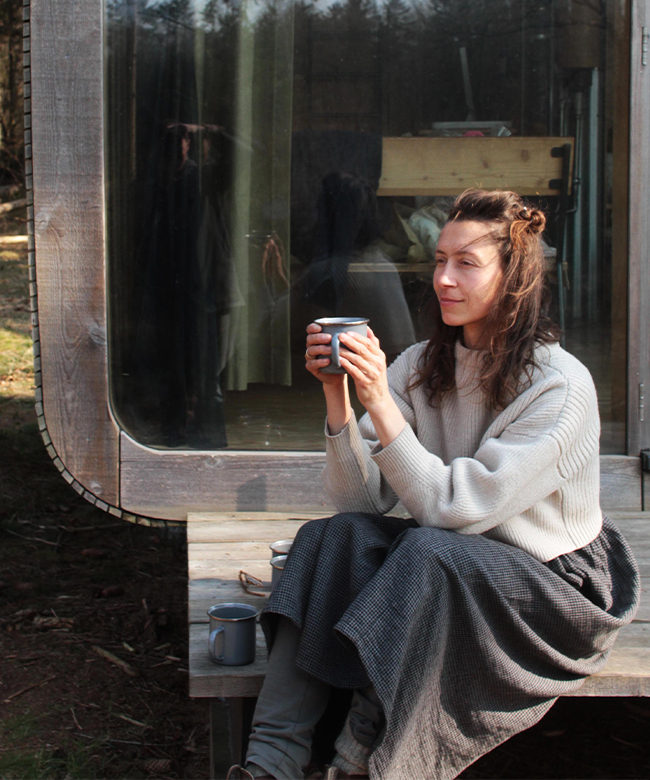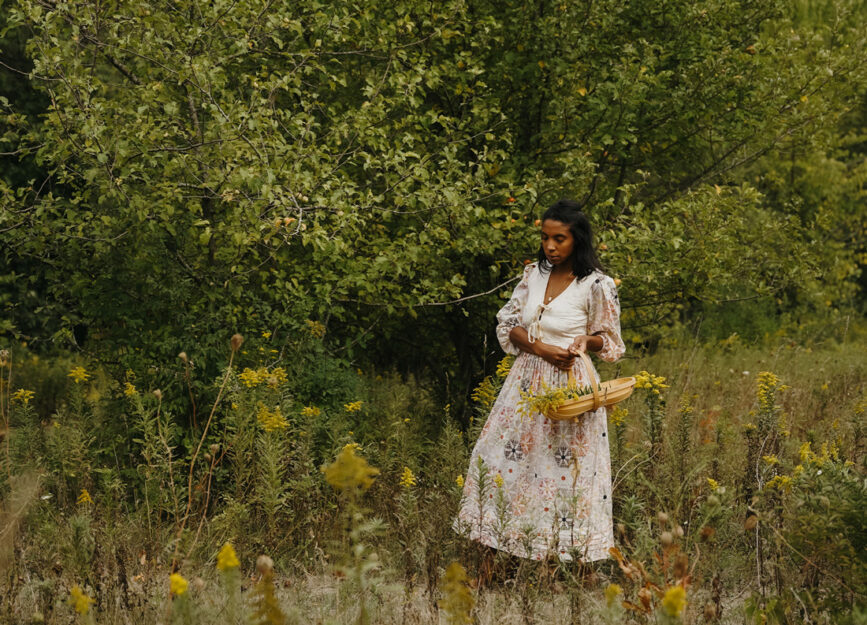

@alysonsimplygrows
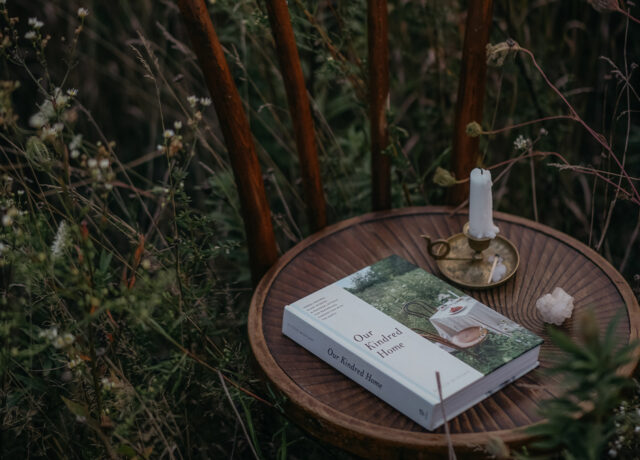

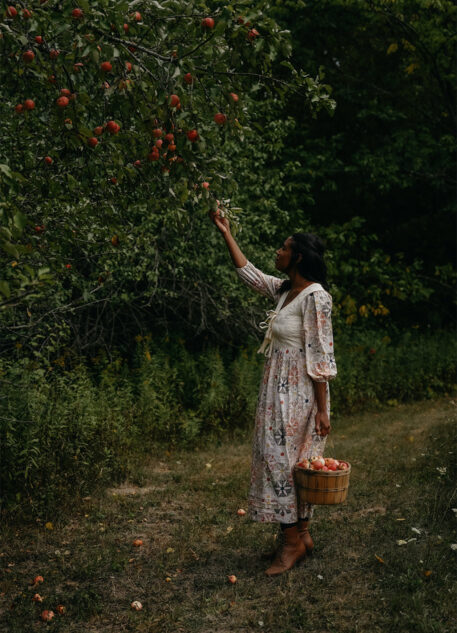

Lifestyle
Slow Living with Alyson Morgan of Our Kindred Home
In our latest slow living editorial series, we speak to photographer, naturalist and mother, Alyson Morgan. Famous for her aesthetically curated instagram and latest book release ‘Our Kindred Home’, Alyson hopes to bring slow folk living inspiration to all through nature based recipes, rituals and practices. We love Alyson’s approach to slow living – highlighting the beauty of nature and how we can live in harmony with it everyday.
Our interview with Alyson Morgan…
First of all, can you tell us a bit about your mission with “slow folk living” and what that means to you?
Slow folk living involves the imperfect journey of divesting in meaningful ways from systems of oppression and uplifting processes that are equitable, sustainable and life giving to people and the earth. Focus on moving away from overconsumption, and investing in rituals, traditions, moving away from products that are not sustainability made and the unrelenting focus on new trends. Slow folk living is timeless, practical, useful, enduring and rooted in beauty and function. Oftentimes this is looking back on the life ways of our diverse ancestors for wisdom, knowledge, and perspective on how to live more rooted today.
Can you tell us a bit about what inspired you to live a more simple life?
After my undergraduate degree at UC Davis sparked my interest understanding the connection between global inequality, environmental degradation and the extractive system of global capitalism, I was left feeling hopeless and lost. Especially after becoming a mother. I was left wondering what kind of world I would be bringing my daughter into. I felt on a deep level that I needed to explore new ways of existing within this paradigm. To give up certain ideas and ideals to feel more wholeness within.
I wanted to understand and take part in the ways in which my life was supported on this earth. Raising chickens, growing some of our own food and herbs and composting all became experiential ways supporting our existence on this earth. We by no means grow all our own food, or not shop at grocery stores, but these practices helped up to understand more deeply our impact on this earth and our interconnectedness.
How does nature play a role in your life and work?
Nature is the soil in which I’m rooted, it’s the sun which feeds me, it is inspiration in the leaves, the flower, the mushroom and it is my source. It’s well-being is intertwined with mine and my family’s. I let the seasons, the plants and the earth guide my actions, and when I lose sight of it I feel untethered and not like myself. It is not an abstract concept but all encompassing.
What does the idea of a “rooted home” mean to you?
A rooted home is the idea that our homes can be a sanctuary. A sacred and harmonious place allowing us to feel most like ourselves. Where you come to rest, play and become nourished before you embark on the world. I think it’s important especially in home design to know about the materials coming into our homes. Are they good for our bodies and are they good for the environment? Am I creating a space of ease, beauty as well as health?
So much of our lives are co-opted and tainted with environmental pollutants. From paint to fabrics to furniture to detergents. When we make the choice to divest from those materials, our homes become safer. Chemicals are not entering into the environment. We can breathe more easily and our homes are not sources of taxing our local ecosystems. Our homes serves as the foundation of our lives. Spiritually, mentally and physical, add is connected to our collective home, this earth.
Can you tell us a bit about the Driftless region in Wisconsin where you are building your homestead? It sounds like an incredible space!
The Driftless region is an area in the Midwestern region of the United States that was untouched by glacial drift. Meaning it wasn’t flattened by a glacier during the Ice Age like much of the midwest. Preserving plants and flora and topography. This area is the traditional homeland of the Sauk, Meswauki, Sioux and Ho Chunk. There is an interesting convergence of people here focused on building community and protecting the environment. There is a wildness to the winding roads and cliffsides dotted with trillium in the spring.
You are working on building a new home with all ecological materials. Can you tell us a bit about the process and sourcing for this?
In the process of building our home we thought about using materials sourced as locally as possible. Using recycled materials, or materials that would stand the test of time and ideally, would not need to be replaced in our lifetime. Our budget and access to resources also affected what we chose. Instead of using synthetic materials, we chose when we could to use natural stone, recycled tiles, hardwoods and avoided plastics when possible.
How do you impart the wisdom of living in harmony with nature to your children?
I encourage my children to play outdoors, to spend time in nature getting dirty. I share with them that all living things, plants, animals, insects, trees, stones and soil should be valued. Everything has a story and a lifetime and we get to be a part of that. They plant seeds with me in late winter, sow seeds in early spring, tend to the garden, pull weeds and water with me in the summer, harvest in the fall and eat and enjoy what we’ve grown in the kitchen. This knowledge, experience and cycle builds meaningful relationships within them. We discuss the pitfalls of monoculture and the extractive ways humans treat the planet, we dream up new ways of existing with our earth and it is my hope these seeds I plant within them will grow and change our world.
What inspired your connection to plants and the practice of herbalism?
I’ve always had an affinity with nature, especially growing up in Northern California. The old oaks and the majestic and ancient redwoods along the California coastlines were the backdrop to my childhood and imagination. They felt like kin to me. It wasn’t until we moved from the suburbs of Milwaukee to our little cottage in the Driftless did the worlds of herb and plant wisdom and healing open up for me.
The little cottage we purchased was owned by a seasoned herbalist before us. She planted up the garden with plants she used in her own apothecary and on her clients. I walked into that garden not knowing much about herbalism other than the elderberry syrup I had made the winter before for my children. It was over the course of five years that I learned the song of the plants and their healing wisdom through sitting with them, using them, scouring books and blogs, attending herbal workshops and asking members of the community well versed in plants that I learned and practised herbalism.
Alyson Morgan On Her New Book…
What inspired you to write your book, Our Kindred Home?
I was inspired to write Our Kindred Home in part to share my winding journey to deeper connection to the earth and the plants, to inspire other to connect with earth especially after the chaotic and tumultuous year twenty twenty when so much of the collective shadow and hurt came to the surface, I wanted to share rituals and recipes and plants i turned to in my everyday life with others.
What sort of content can we expect to find within its pages?
Our Kindred Home is my personal and seasonal journey. There are tools to connect more deeply with self, recipes to support you through ecological anxiety, despair and grief, personal reflections on how to decolonize the heart and mind, plant monographs by season to encourage you to connect with your local ecology and bring plants into your home and kitchen and practice. Seasonal reflection to understand how what is above is below and how what happens within is happening outside ourselves, and those threads connect and bind us together and with the wider world. We are never alone.
Can you give us all one tip for starting out to embrace a slower style of life?
My number one tip to embracing a slower lifestyle is to get quiet. To spend some time disconnected from phones, social media and maybe with a cup of tea or with a tree outside and to listen to what is calling to you. Maybe something in your life isn’t resonating with you anymore. Maybe you feel overwhelmed by something? Some relationship, some pattern or habit, get curious and begin there, maybe it will take you on a journey. Slowing down can be as simple as practising the art of noticing the phase of the moon. Or the seasons change on the tree outside your window. There is so much information, healing and wisdom to be gained in our immediate experience.














